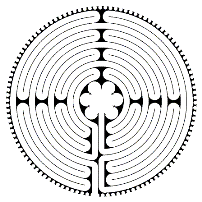Before you answer, please watch the short video "VALIDATION."
Clarification: In his still-in-print book, Creation Continues, author Fritz Kunkel, a highly-thought-of doctor from Germany and later California, writes a telling analysis of the a most significant conversation had near the Transfiguration.
Kunkel says that even Jesus needed the validation that Peter offered him. Jesus asked "Who do men say that I am?" Peter said that Jesus was the Messiah. This brief interchange suggests that while we may arrive at a "validation" from within, we are stuck in the water, so to speak, without a "verification" that can only come from outside us. While the film does not make this distinction directly. I urge you to consider the desirability of verification so that your validation will be fulfilled, even as the mission of Jesus was finally admitted by his first follower.
Clarification:
Clearly the disciples seem to withdraw validation, verification, whatever, via their actions later on. But they come back to their earlier position later after the Resurrection and especially at Pentecost when the Church was formed. From Jesus' point of view, however, he wanted or needed that earlier verification/validation to see if what he was saying and doing in furtherance of revealing his true self was working. Rather than requiring that his disciples accept his claim about who he was, he waited, asked the question of Peter, and realized with Peter's answer that God the Father had inspired the answer.
While Jesus later knew that Peter would deny him, Jesus also placed great trust in Peter who did not betray him as Judas did, only to his regret and subsequent despair. The turning point of which Toni speaks though is not, in my view, self-validation on the part of Jesus in the Garden. Rather it was part of his self-sacrifice and thus a giving up of the desire for validation by his fellow human beings. This was the risk he was willing to take on all of our behalves. It is this self-sacrifice that informs, so to speak, the forgiveness Jesus later spoke of on the cross. By forgiving others, we do not validate or verify their actions. We accept the consequences regardless because we are not in a position to judge them, in the final, though, painful analysis.
Those who get this are like the good thief who gets his reward that very day. Those who don't get it apparently have to wait longer.
BTW: Have you come across Dare We Hope "That All Men Be Saved"?: With a Short Discourse on Hell . Very much like this film's effort to show that all can be and should be "validated," instead of being told to "go to hell."
Then one person wrote me: “I would be interested in your interpretation of that segment in the film when the Validation Clerk seemed to give up. What, in your opinion, was this a metaphor of from real life? The fact that he gave in to the unsmiling DMV Photographer who would not respond to his validation messages. I know that the DMV Photographer represents resistance. I'm looking for an insight that is more than simple resistance. What do you think this represents?”
I responded:
The DMV photographer is caught up in an illusion, brought on by her response to her mother’s paralysis. This part of the film deals with the problem of how often direct efforts won’t work and indirect efforts will. The Validation Clerk gets the picture and the solution in a round-about way.
In my blog entitled “What is the best way to help someone change?” I quote Soren Kierkegaard in his book The Point of View for my Work as an Author wherein he suggests what he sees as the best way to work with someone caught up in an illusion, much like the approach of Socrates:
"...A direct attack only strengthens a person in his illusion, and at the same time embitters him. There is nothing that requires such gentle handling as an illusion, if one wishes to dispel it. If anything prompts the prospective captive to set his will in opposition, all is lost. And this is why a direct attack achieves, and it implies moreover the presumption of requiring a man to make to another person, or in his presence, an admission which he can make most profitably to himself privately. This is what is achieved by the indirect method which, loving and serving the truth, arranges everything dialectically for the prospective captive, and then shyly withdraws (for love is always shy), so as not to witness the admission which he makes to himself alone before God --- that he has loved hitherto in an illusion.
"...if real success is to attend the effort to bring a man to a definite position, one must first of all take pains to find him where he is and begin there. This is the secret art of helping others. Anyone who has not mastered this is himself deluded when he proposes to help others. In order to help another effectively I must understand what he understands. If I do not know that, my greater understanding will be of no help to him...all true effort to help begins with self-humiliation: the helper must first humble himself under him he would help, and therewith must understand that to help does not mean to be a sovereign but to be a servant, that to help does not mean to be ambitious but to be patient, that to help means to endure for the time being the imputation that one is in the wrong and does not understand what the other understands.
"Take the case of a man who is passionately angry, and let us assume that he is really in the wrong. Unless you can begin with him by making it seem as if it were he that had to instruct you, and unless you can do it in such a way that the angry man, who was too impatient to listen to a word of yours, is glad to discover a complaisant and attentive listener --- if you cannot do that, you cannot help him at all...if you cannot humble yourself, you are not genuinely serious. Be the amazed listener who sits and hears what the other finds the more delight in telling you because you listen with amazement... If you can do that, if you can find exactly the place where the other is and begin there, you may perhaps have the luck to lead him to the place where you are. For to be a teacher does not mean simply to affirm that such a thing is so, or to deliver a lecture, etc. No, to be a teacher in the right sense is to be a learner. Instruction begins when you, the teacher, learn from the learner, put yourself in his place so that you may understand what he understands in the way he understands it.
This person also asked: “Also, as he transitioned into photography; what did the first couple represent for him? There was very little interaction; however after reconnecting with his sense of self, he transformed again. I'm interested in your thoughts on these scenes.”
I responded: The photography scenario represents the indirect approach as well, a distancing the photographer a bit from his subjects, reframing his engagement with them, paralleling the DMV photographer showing it is important to stand in another’s point of view before proceeding. One of my teachers called it “passing over” to the other’s P.O.V. and then returning to one’s own.
Then someone else asked the following question: “Why exclude Hitler from validation? In my opinion if had felt validated in the first place, he would not have needed to attempt to take over the world. He serves a great symbol in our history.”
I responded, privately: We cannot rewrite the history of Hitler. He clearly is the modern symbol for evil incarnate. However, the question going forward is really whether he is forgivable, as a human being not caring what he has come to symbolize?
In trying to come to grips with that question, I have read extensively about the man. Two books have been especially helpful to me as I wondered why he had such hatred of Jews.
The first is called THE PSYCHOPATHIC GOD: ADOLPH HITLER. The second is one I’ve mentioned to you before: Explaining Hitler. In the first book, the author describes well the many dimensions of psychopathology probably involved in Hitler’s anti-Semitic behavior. I was especially interested in the self-divinization aspects as you might understand. But the second book is even more telling, since the author argues quite tightly that no explanation adequately explains Hitler. He remains a mystery. The explanations are more often projections of theories onto him.
This stands to reason since, first, as a human being (who may have thought of himself as a god) Hitler, like all of us, was and is a mystery that no amount of description can capture fully. None of us is transparent to that degree, even to ourselves, what with our unconscious actively bubbling up in our dreams for example. Second, evil itself, pure and simple, is not a separable thing. Evil is parasitical; living on the good. The closer evil gets to killing off the good, it dis-integrates completely for it has no life of its own and cannot live without its host.
Given these conclusions, it seems that even Hitler may be, or may be already has been, offered the opportunity for forgiveness. (But would he accept it, especially from someone claiming to be the true God?) To forgive completely, which is a form of validation, would require a forgetting as well. That may take an eternity to accomplish in Hitler’s case. But it is not out of the realm of possibility given what is speculated about the length of time we will have to live in Heaven and Hell. And given the number of people in line to forgive him, it will take that long most likely.
This same other person also asked the following question: “Did Jesus need to be crucified to validate himself and so become a symbol for our world?”
I again responded privately: This is a much higher level question. If you Google the question: “did Jesus have to die?” you will discover countless articles with a wide variety of fascinating answers from many perspectives of the players who were historically involved. Time magazine devoted a cover story to this question when Mel Gibson’s movie came out:
 While these human perspectives are worth considering, the more difficult problems about the question lie on the theological plane. If Jesus is God’s only Son, what on earth did He have in mind requiring His Son to undergo sacrificial crucifixion? Some of the articles approach this problem.
While these human perspectives are worth considering, the more difficult problems about the question lie on the theological plane. If Jesus is God’s only Son, what on earth did He have in mind requiring His Son to undergo sacrificial crucifixion? Some of the articles approach this problem.Pope John Paul II is one of my favorite guides in this and other matters. Here’s part of what he wrote about what is called the “scandal of the cross” (an extract from Crossing the Threshold of Hope, pp 62-63):
"Given our present discussion, we must ask ourselves: Could it have been different? Could God have justified Himself before human history, so full of suffering, without placing Christ's Cross at the center of that history? Obviously, one response could be that God does not need to justify himself to man. It is enough that He is omnipotent. From this perspective everything He does or allows must be accepted. This is the position of the biblical Job. But God, who besides being Omnipotence is Wisdom and - to repeat once again - Love, desires to justify Himself to mankind. He is not the Absolute that remains outside of the world, indifferent to human suffering. He is Emmanuel, God-with-us, a God who shares man's lot and participates in his destiny. This brings to light another inadequacy, the completely false image of God which the Enlightenment accepted uncritically. With regard to the Gospel, this image certainly represented a step backward, not in the direction of a better knowledge of God and the world, but in the direction of misunderstanding them.
"No, absolutely not! God is not someone who remains only outside of the world, content to be in Himself all-knowing and omnipotent. His wisdom and omnipotence are placed, by free choice, at the service of creation. If suffering is present in the history of humanity, one understands why His omnipotence was manifested in the omnipotence of humiliation on the Cross. The scandal of the Cross remains the key to the interpretation of the great mystery of suffering, which is so much a part of the history of mankind.
"Even contemporary critics of Christianity are in agreement on this point. Even they see that the crucified Christ is proof of God's solidarity with man in his suffering. God places Himself on the side of man. He does so in a radical way:
"He emptied himself,
taking the form of a slave,
coming in human likeness;
and found human in appearance,
he humbled himself,
becoming obedient to death,
even death on a cross." (Phil 2:7-8)
“Everything is contained in this statement.”
Thus, Jesus did not need to be crucified to be validated himself from the view of the Enlightened rationalist point of view. Rather, God wanted Jesus to undergo even this suffering and death to show the extent of God’s love for and solidarity with us, that He would even die for us. This is John Paul II’s intuitive grasp of the issue. (The Catechism of the Catholic Church also treats of this matter if you are interested in seeing what else is basically taught.)
As deeply desolating as Jesus’ dying doubtless is when contemplating it, the consolation comes with the resurrection of Jesus. The most compellingly argued treatment of the resurrection of Jesus I have ever found is N.T. Wright’s book and DVD. Anne Rice, of vampire fame, was the one who put me on to Wright’s work. Who’d have thought that would be the way I found out about him and his insights. One never knows. I whole-heartedly recommend watching the DVD and reading the book.


















































